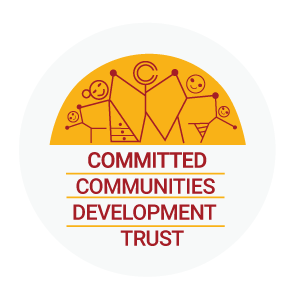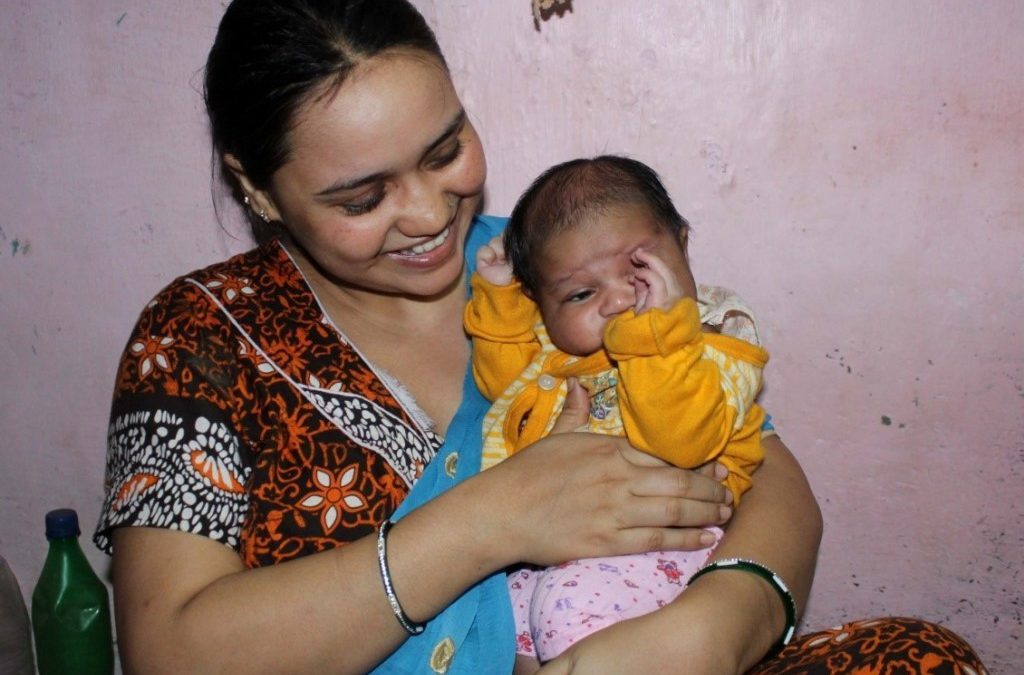Yasmin Madanvar Shaikh, a beneficiary of CCDT’s mMitra program shares how the mobile-health program designed to reduce maternal mortality and morbidity in urban slum communities, enabled her to deliver a healthy baby after two failed attempts.
“When I first conceived, I was so excited to become a mother”, shares Yasmin. “I was very young, only 19 years old but I was still eager to hold my first child in my arms. When I delivered a stillbirth baby in my eighth month, it was probably the hardest moment of my life. I’d spent so many months preparing to receive my baby and instead, mine came out lifeless. We immediately tried for another child and this time I delivered a baby but due to Jaundice, he passed away within six days itself. Again, I was devastated and couldn’t understand why this was happening to me.”
“When I conceived for the third time at age 22, we shifted to Mumbai, hoping to deliver a healthy baby. In my village, no one could explain why I had lost the first two babies. I was hoping that Mumbai would be different. It was here that I met Mamta didi, a community organizer from CCDT, during my sixth month. She registered my pregnancy and I began to receive mMitra calls thereafter. Mamta shared that these calls would provide me with whatever information I needed for my own health and that of my baby, according to my stage of pregnancy. I found these calls very helpful.”
“For instance, I learned through these calls that I needed to have regular checkups during my pregnancy, to follow a nutritional diet chart, to regularly consume IFA and calcium tablets and maintain personal hygiene. It was during one such visit that I discovered that I had gestational diabetes. I was very stressed out at the time; I kept worrying that I would lose this baby as well. But, Mamta didi reassured me that it was a manageable condition if I followed that right diet and took care of myself. Through didi’s regular visits, I was able to keep my diet and diabetes under control.”
 Mamta explaining the importance of mMitra calls to Yasmin
Mamta explaining the importance of mMitra calls to Yasmin
Mamta, a community organizer with CCDT’s mMitra program notes that Yasmin’s case was identified as a high-risk pregnancy and as a result, she received monthly home visits, and her pregnancy was closely monitored. “Yasmin required a lot of emotional support and counseling, because of her previous stillbirth and neonatal death”, recalls Mamta. “I used to reassure her at every visit that if she took the right precautions, she would deliver a normal, healthy baby.”
Mamta ensured that an ANM from Rajendra Health Post visited Yasmin’s home to provide a Tetanus injection and sensitize her on the importance of regular ANC check-ups for a safe institutional delivery.
“There were no such facilities in my village,” shares Yasmin. “Had I received these calls from mMitra and home visits from a community organizer during my previous pregnancies… they might have turned out better. Women undergo so many emotional and physical changes during pregnancy. It is so important to have someone by our side, who we can rely on emotionally, to encourage us right until we deliver. I’m so grateful that we moved to Mumbai and I was able to access this level of support through the mMitra program. It is only because of this support that I managed to deliver a healthy baby this time around.”
 Yasmin with her baby boy and husband
Yasmin with her baby boy and husband


Recent Comments